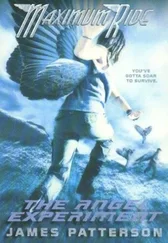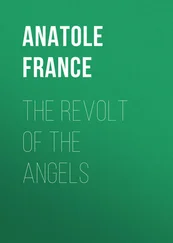Yukio Mishima - The Decay Of The Angel
Здесь есть возможность читать онлайн «Yukio Mishima - The Decay Of The Angel» весь текст электронной книги совершенно бесплатно (целиком полную версию без сокращений). В некоторых случаях можно слушать аудио, скачать через торрент в формате fb2 и присутствует краткое содержание. Год выпуска: 2010, Издательство: CCV Digital, Жанр: Старинная литература, на английском языке. Описание произведения, (предисловие) а так же отзывы посетителей доступны на портале библиотеки ЛибКат.
- Название:The Decay Of The Angel
- Автор:
- Издательство:CCV Digital
- Жанр:
- Год:2010
- ISBN:нет данных
- Рейтинг книги:5 / 5. Голосов: 1
-
Избранное:Добавить в избранное
- Отзывы:
-
Ваша оценка:
- 100
- 1
- 2
- 3
- 4
- 5
The Decay Of The Angel: краткое содержание, описание и аннотация
Предлагаем к чтению аннотацию, описание, краткое содержание или предисловие (зависит от того, что написал сам автор книги «The Decay Of The Angel»). Если вы не нашли необходимую информацию о книге — напишите в комментариях, мы постараемся отыскать её.
The Decay Of The Angel — читать онлайн бесплатно полную книгу (весь текст) целиком
Ниже представлен текст книги, разбитый по страницам. Система сохранения места последней прочитанной страницы, позволяет с удобством читать онлайн бесплатно книгу «The Decay Of The Angel», без необходимости каждый раз заново искать на чём Вы остановились. Поставьте закладку, и сможете в любой момент перейти на страницу, на которой закончили чтение.
Интервал:
Закладка:
When breakfast was on the table, he poked at a breast by way of good morning.
“Nice and firm.”
“Yes, in very good shape.” Tsuné answered respectfully if expressionlessly. The heavy, dark flesh itself was respectful. Particularly deferential was the navel, deep as a well. The beautiful legs were somehow incompatible with the rest of Tsuné. She was aware of that fact. Tōru had seen how, as she brought coffee past on the uneven floor of the coffeehouse, she had brushed her calf against the lower branches of the starving rubber plant, like a cat rubbing against a bush.
Tōru thought of something. Going over to the window, he looked down into the garden, the chest of his bathrobe open to the morning breeze. Even now Honda scrupulously respected the hour for his morning walk, just after he was out of bed.
Tottering along on his stick in the stripes of November sunlight, Honda smiled and managed a good morning Tōru could barely hear.
Tōru smiled and waved. “I’ll be damned. The old man’s still alive.” That was his good morning.
Still smiling, Honda skirted a dangerous steppingstone. He did not know what would come flying down upon him if he were so incautious as to say more. He had only to endure this moment of humiliation. Tōru would be out of the house at least until evening.
“Old people smell bad. Go away.” Honda’s offense had been to come too near.
Honda’s cheek twitched with anger, but he had no recourse. If Tōru had shouted at him, he could and would have shouted back. But Tōru had spoken softly and coolly, gazing at Honda with his clean, beautiful eyes, a smile on his pale face.
Tōru’s dislike seemed to have grown through the four years they had been together. He disliked everything, the ugly, impotent flesh, the useless chatter that covered the impotence, the tiresome repetitiveness, five and six times over, the automatism that became fretful at the repetitiveness itself, the self-importance and the cowardice, the miserliness and the self-indulgence, the pusillanimity in the constant fear of death, the complete permissiveness, the wrinkled hands, the gait like a measuring worm, the mixture of arrogance and obsequiousness on the face. And Japan was teeming with old people.
Back at the breakfast table he kept Tsuné on duty to pour his coffee. He had her put in sugar. He complained about the toast.
It was a sort of superstition that the success of a day depended upon a smooth beginning. The morning must be an unflawed crystal. He had been able to endure the boredom of life at the signal station because observation did not damage self-respect.
Once Tsuné said: “The manager of the coffee shop used to call me Asparagus. Because I am long and white, he said.”
Tōru replied by pressing his lighted cigarette against the back of her hand. Stupid though she was, Tsuné thereafter minded her words. Especially when she served him at breakfast. The four “maids” took turns on duty. Three of them looked after Tōru, Honda, and Kinué, and the fourth was off duty. The one who served Tōru his breakfast was the one he received in his bed at night. When he had finished with her she was dismissed. No one was permitted to spend the night with him. They thus enjoyed his favors once every four days, and were allowed to leave the house once a week. Honda secretly admired the tightness of the control and the want of dissension. The maids followed Tōru’s orders as if to do so were in the nature of things.
He had taught them all to call Honda “the old master,” and otherwise trained them impeccably. Occasional callers would say that nowhere else these days did they see such beautiful and well-trained maids. Tōru left Honda wanting for nothing even while humiliating him.
Having made himself ready for school, Tōru always looked in at the garden cottage. Carefully made up, wearing a negligee, Kinué always received him from the chaise longue on the veranda. Her newest coquetry was illness.
Tōru would sit on the veranda and face the ugly woman with the warmest, most sincere gentleness.
“Good morning. And how are you feeling this morning?”
“Not too bad, thank you. I doubt if there is anything more beautiful in this world than the moment when a beautiful woman with only the strength to make herself up, all weak on her couch, receives a caller and manages a feeble ‘Not too bad, thank you.’ The beauty of it all waves like a heavy flower, and it is there on her eyelids as she closes her eyes. Isn’t it? I think of it as the one thing I can do for all your kindness. But I’m very grateful. You’re the one kind man in the world who gives me everything and asks nothing in return. And now that I’m here I can see you every day and don’t have to go out. If only your father weren’t here.”
“Don’t worry about him. He’ll give up and die one of these days. The September business has been taken care of and everything is going fine. I think next year maybe I can buy you a diamond ring.”
“How nice! That’s what will keep me alive, the thought of it. But today I’ll have to make do with flowers. The white chrysanthemum in the garden is my flower for today. Will you pick it for me? How nice. No, not that one. The one in the pot. That’s it. The big white one with the petals all drooping like threads.”
Heedlessly, Tōru broke off the white chrysanthemum so carefully tended by Honda. Like an ailing beauty, Kinué turned it languorously in her fingers. Then, with an all-too-fleeting smile on her lips, she put it in her hair.
“Be off with you. You’ll be late for school. Think of me between classes.” And she waved him good-bye.
Tōru went to the garage. He started up the Mustang sports car he had had Honda buy him that spring upon his entry into the university. If the absent, romantic engine of a ship could cut through waves so cleanly, kick up such a wake, then why could not the six delicately alert cylinders of the Mustang scatter the stupid crowds, cut through the masses of flesh, scatter splashes of red as the other scattered splashes of white?
But it was held in quiet control. It was coaxed and wheedled into a gentle pretense of docility. People admired it as they admire a sharp, shining blade. It forced a smile from its beautiful hood, paint all ashine, to assure them that it was not dangerous.
Capable of a hundred and twenty-five miles per hour, it debased itself by keeping to the twenty-five-mile speed limit as it made its way through the Hongō morning crowds.
The September third incident.
It began with a little spat Tōru and Honda had in the morning.
Through the summer Tōru had been happily rid of Honda, who had taken refuge from the heat at Hakoné. Reluctant to rebuild after his Gotemba villa burned down, Honda had left the land as it was and, always sensitive to the heat, spent his summers at a Hakoné inn. Tōru preferred to stay in Tokyo and drive here and there, to the mountains and the sea, with friends. Honda returned to Tokyo on the evening of September second. He saw Tōru for the first time in some weeks. There was clear anger in the eyes that greeted him from the sun-blackened face. Honda was frightened.
Where was the crape myrtle, he asked in surprise as he went out into the garden on the morning of the third. The old crape myrtle by the garden cottage had been cut at the roots.
Kinué, who had been in the main house, had moved to the cottage early in July. It had been from fear of Tōru after the poker incident that Honda had first taken her in.
Tōru came out. He had the poker in his left hand. His room was a remodeled parlor. It had the only fireplace in the house. Even in summer there was a poker on the nail beside it.
Tōru of course knew that the mere sight of it would make Honda cower like a whipped dog.
Читать дальшеИнтервал:
Закладка:
Похожие книги на «The Decay Of The Angel»
Представляем Вашему вниманию похожие книги на «The Decay Of The Angel» списком для выбора. Мы отобрали схожую по названию и смыслу литературу в надежде предоставить читателям больше вариантов отыскать новые, интересные, ещё непрочитанные произведения.
Обсуждение, отзывы о книге «The Decay Of The Angel» и просто собственные мнения читателей. Оставьте ваши комментарии, напишите, что Вы думаете о произведении, его смысле или главных героях. Укажите что конкретно понравилось, а что нет, и почему Вы так считаете.











